The Making Of Naam: How Mahesh Bhatt's Film Gave Fallen Star Sanjay Dutt A Second Life
In Naam, Sanjay Dutt died on screen. But in the hearts of the viewers, he was reborn.
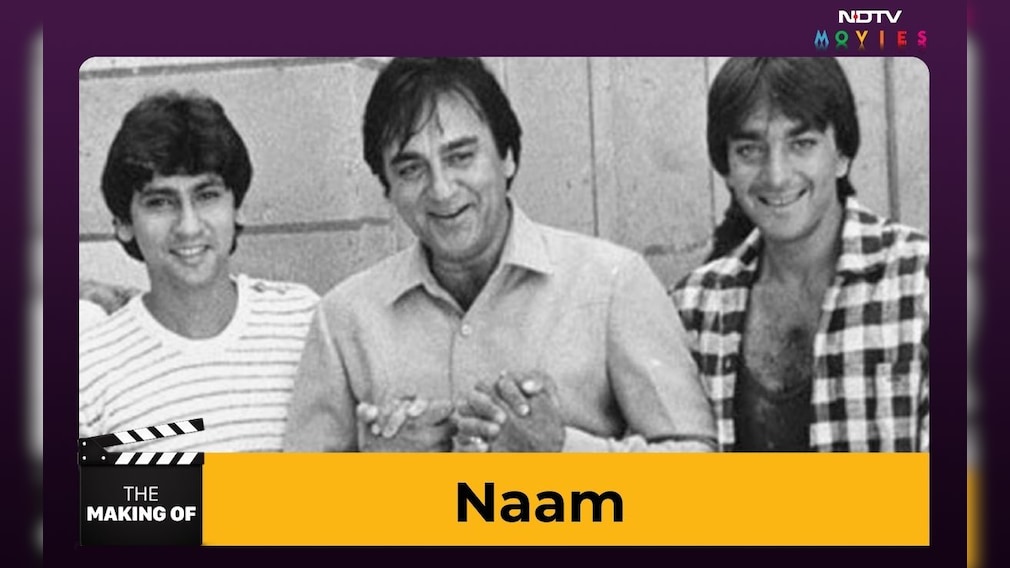
Released on 12 September 1986, Mahesh Bhatt's Naam was more than a film. It was the story of four artists clawing their way back from the brink, each fighting for redemption. But at its heart, it became something larger: the miraculous resurrection of Sanjay Dutt. At a time when no one believed in him and the film industry had written him off, he came back with a performance that changed everything.
Naam sealed it, but Sanjay Dutt's battle for redemption had begun long before the cameras rolled.
Sanjay Dutt's Dark Descent
On May 3, 1981, just five days before the premiere of his debut film Rocky, Sanjay Dutt lost his mother, the legendary Nargis, to cancer. At twenty-two, shattered and already drifting into drugs, her death broke him completely.
On May 8, the premiere went ahead as she had wished. The theatre was packed, but seat E-15 remained empty. Sunil Dutt sat on one side, Sanjay on the other. As the lights dimmed and the film began, father and son kept glancing at that vacant chair. It was meant for Nargis.
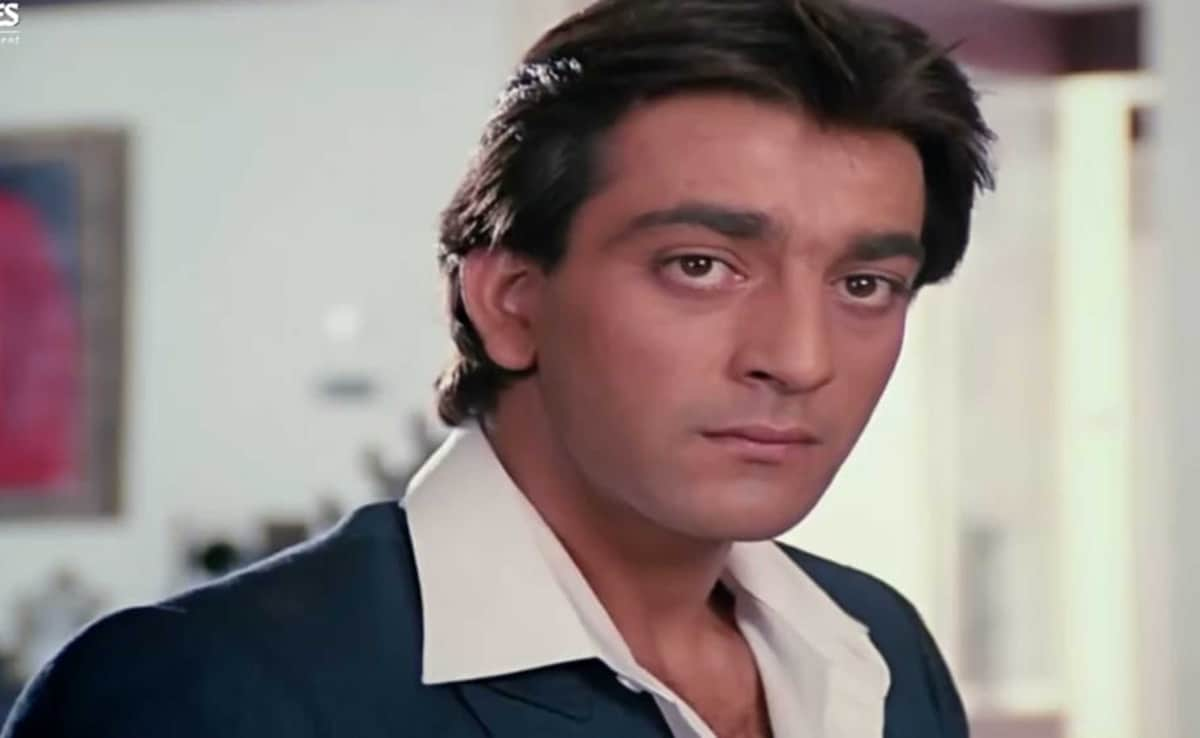
Rocky didn't do too well, but that hardly mattered to Sanjay. Broken and withdrawn, he sank deeper into drugs. His only close friend then was Kumar Gaurav, who was also dating his sister Namrata. Gaurav had debuted in the film Love Story that same year, and it had proved to be a blockbuster, with the media hailing him as the 'next Amitabh Bachchan'.
Recommended
Sanjay, meanwhile, was spiralling. He missed shoots, disappeared for days, and film gossip columns were filled with stories about his drug use. Sanjay himself later admitted, 'My father called my producers and told them, "My son is on drugs. Be aware before you sign him on."'
More than a year passed before Sunil Dutt decided enough was enough. Having already lost his wife, he could not lose his son, too. He sought medical help, but with few rehab options in Mumbai, Sanjay went from a city clinic to Breach Candy Hospital. Nothing worked. Each painful treatment failed, and every time, he went back to drugs.
"I Knew I Was Going To Die"
One day after taking a high dose of heroin, Sanjay went to sleep in his room. He remembers waking up hungry. 'It was early in the morning. So I told my servant to get me something to eat.' The house help looked at him and then started weeping. He told Sanjay that he had woken up after two whole days. 'Two days ago, you went to sleep, and the house has gone crazy; people have been so worried for you.'
Sanjay couldn't believe it. And when he saw himself in the mirror, he was dumbfounded. His face was swollen, his eyes were puffy and sunken. His skin was scarred by needle marks. He could hardly recognise himself - there was little resemblance between the reflection he saw and the handsome man he used to be. That moment chilled
Sanjay. 'I knew I was going to die.' Sanjay went to his father and broke down. 'I need help. I want to change my life,' he wept.
From Darkness To Light
On a cold January day in 1984, Sanjay flew to the US with his father and was admitted to a hospital in South Miami. His body was frail and trembling, wracked with severe withdrawal symptoms. At the hospital, he was asked what drugs he had been using. 'There was a doctor there who gave me a list of drugs and told me: "Just tick the ones you have done." Toh maine woh list dekha aur bola [I saw the list and said]: "Yaar, yeh toh sab tick karna padega! [I'm going to have to tick them all!]," he later recalled jocularly. At that time, the doctors were surprised that Sanjay was even alive. They told his father, 'Going by the drugs he did, he should have been dead by now.'
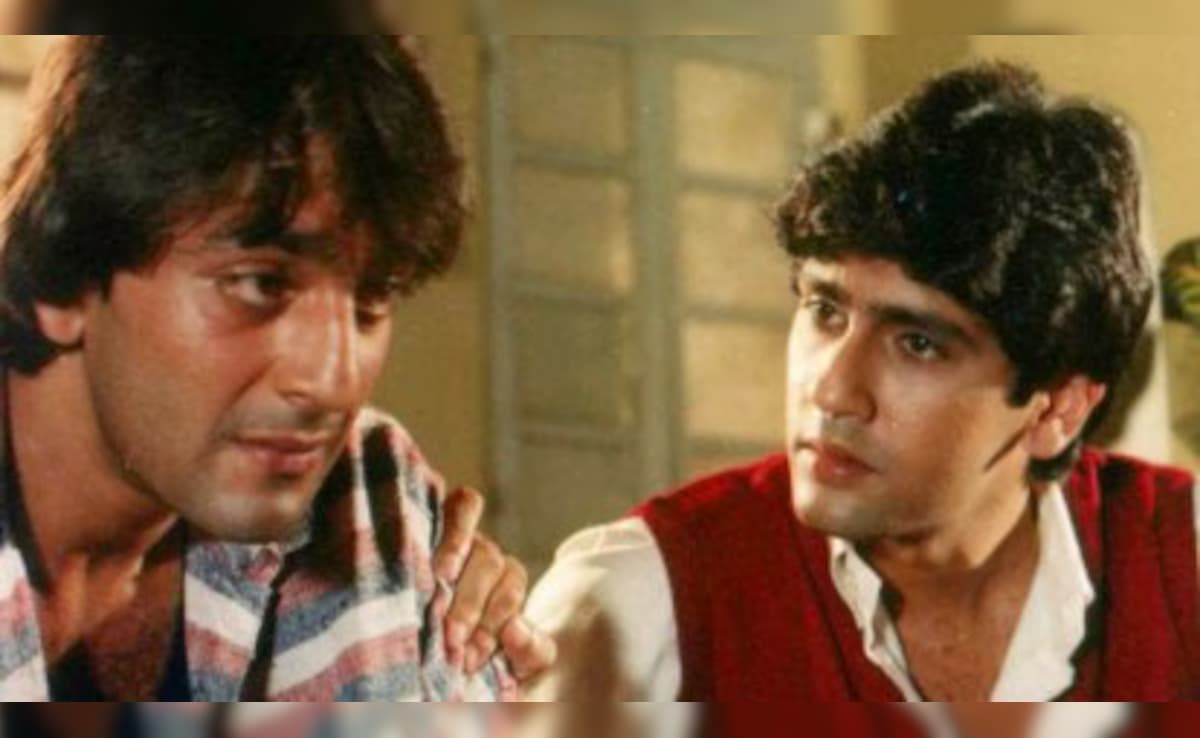
Sanjay began group therapy and an intense detox program, but the pattern of relapse repeated. The doctors warned he was not just addicted to drugs, he was also an alcoholic. Frustrated, Sanjay left the centre and went to a friend's apartment in Washington. His friend gave him a stark warning: if he didn't get a grip on himself, he would die. The next day, Sanjay returned to Miami, ready to commit to long-term therapy.
He was sent to a rehabilitation centre in Canton, near Jackson, Mississippi, where he would face his demons alone for the next six months.
His Mother's Voice
In rehab, Sanjay finally began to feel hope. Meeting people who had faced worse struggles, he slowly made friends and started confronting his own demons. During group therapy, he admitted to having a death wish, haunted by the loss of his mother, Nargis. Sanjay was allowed one call a week. He would phone home and sometimes call Kumar Gaurav. But he was falling apart again, and it seemed like he might return to drugs. In a last-ditch attempt to save Sanjay, his father sent him some tapes of Nargis talking during her final days.
Sanjay had not cried when his mother died.
It had been three long years since Nargis had passed away, but Sanjay's wounds were still festering. When Sanjay got the tapes from his father, he had no idea what was on them. He pressed pla,y and suddenly the room was filled with Nargis's voice. He remembered his childhood, when his mother's voice would reverberate through the Dutt mansion. The voice he was hearing now was different. It was weak, broken and in immense pain. But his mother still spoke of her dreams for her beloved Sanju, and gave him some gentle advice. "More than anything, Sanju . . . Keep your humility. Keep your character....That is the thing that is going to take you far. And that is going to give you strength in your work . . ." Sanjay sat, statue-like, and listened. It was just him and his mother in that room. 'I heard my mother's voice. . . advising me and telling me things and how much she loved me and how much she cared about me . . . and how much she expected from me,' recalled Sanjay. '. . . I burst out crying and I cried and cried . . .' He was listening to his mother's dying wish. 'I cried continuously for four days . . . I think till then I hadn't grieved for her when she passed away. So her voice and those tapes changed everything in my life,' said Sanjay.
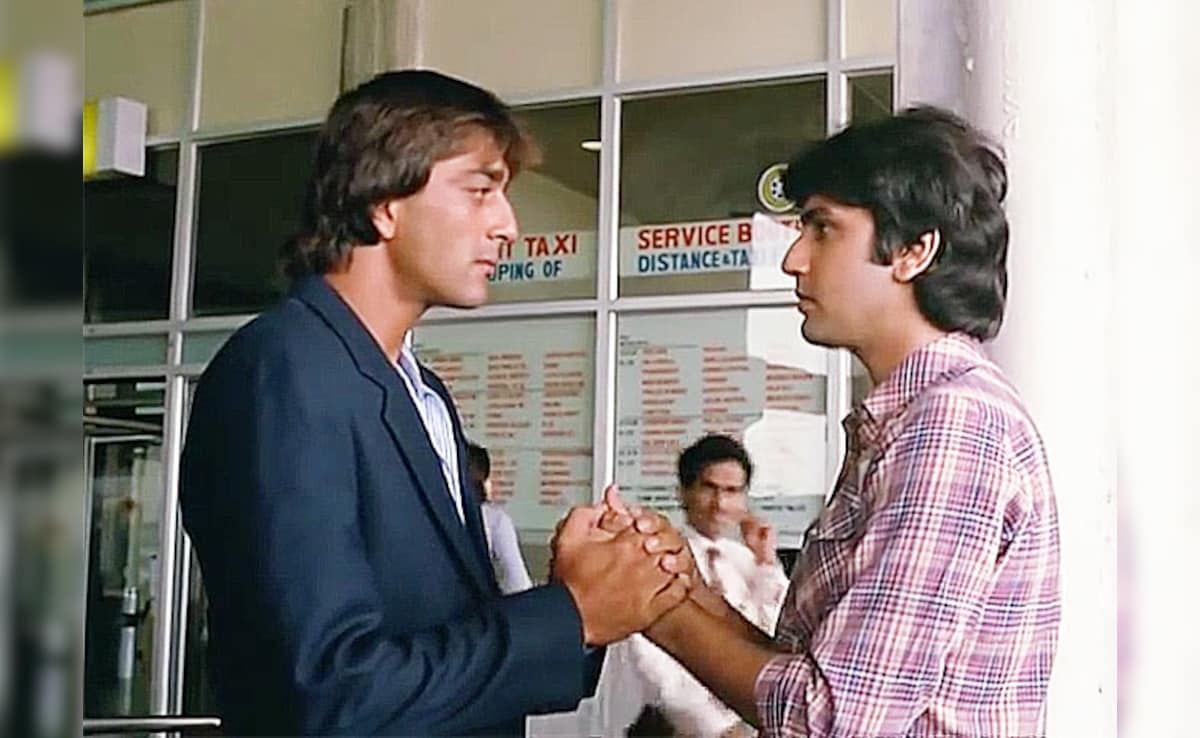
The incident was a turning point in Sanjay's life. Sanjay knew that he had to rebuild his life.
Sanjay had been in rehab for nine months and was beginning to enjoy his peaceful life away from the bright lights of Mumbai. So much so that he was seriously contemplating settling down in America. Concerned, his father Sunil flew to meet him, urging, "Son, come back... show everyone you're not hiding." Sanjay agreed, but on one condition: he would try Bollywood for a year; if it didn't work out, he would return to America. In September 1984, Sanjay Dutt landed in Mumbai.
Life was still uncertain. Namrata and Kumar Gaurav were getting married, the women he had dated had moved on, and the industry had lost faith in him. He would have to start over, and his heart was still set on returning to the US.
Producer Pappu Verma offered Sanjay a film, and he asked for it to be shot quickly so he could return to the U.S. The shoot wrapped in three months, and Jaan Ki Baazi was released in 1985 to reasonable success. Buoyed by renewed confidence, Sanjay chose to stay in India, ready to rebuild his career and prove himself all over again.
The Road To Naam
Sanjay had not yet had that one true superhit film when fate connived to bring together four men who were hungry for success and would make Bollywood history.
Mahesh Bhatt debuted as a director in 1974 with the bold Manzilein Aur Bhi Hain - a film about two fugitives and their relationship with a prostitute. The movie, completed in 1972, was initially refused a censor certificate for 'mocking the sacred institution of marriage'. It was released much later with many cuts. 'It was a box-offi ce fl op, too radical and shocking for the audience,' said Mahesh Bhatt. After directing four flop films, he shot to fame with another daring film, Arth (1982) - a semi-autobiographical take on extramarital affairs, featuring Shabana Azmi, Kulbhushan Kharbanda and Smita Patil. His next film, Saaransh (1984), also brought him immense critical acclaim and did decent business at the box office. But Mahesh wanted to make a film that would break box-office records and establish him as a successful commercial director.
He was working on a story idea around two half-brothers. One brother goes astray and joins a drug cartel, while the other goes all out to save him. Mahesh shared his idea with Kumar Gaurav, who had started his own production house. After the extraordinary success of his debut movie Love Story, most of his films had bombed, and, like Mahesh, Kumar Gaurav was hankering for success. He loved Mahesh's concept and wanted to produce the movie under his banner.
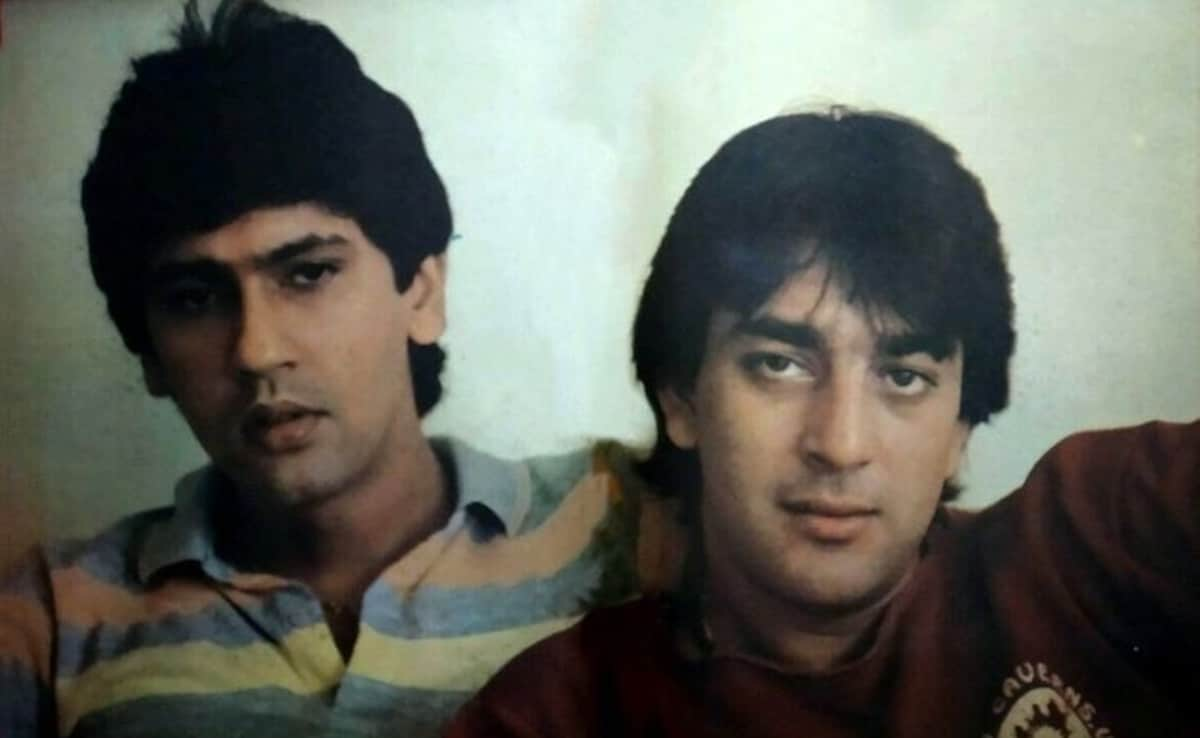
Mahesh then took the idea to scriptwriter Salim Khan. After splitting up with his screenwriting partner Javed Akhtar - together they had delivered blockbuster scripts for Sholay, Deewar, Don and Yaadon Ki Baaraat - Salim had been at the receiving end of snarky jibes which hinted that Javed was the true scriptwriting talent in the duo and that Salim had been riding on Javed's coattails. These rumours hurt Salim. "After the huge success, there was a strange phase. My phone stopped ringing. No producer called, and I would check it constantly, wondering if it was dead. He came on board immediately. 'I wanted my return to be with a strong film whose success could be solely ascribed to me,' he remembered.
These three men were joined by a fourth who also had fire in his belly: Sanjay Dutt. Now that Sanjay had decided to stay put in Mumbai, he had to prove to the world that his drug phase was behind him and that he could deliver hit films. Mahesh had first met Sanjay during his addiction days. He was convinced that the two main actors he wanted for the film were the best friends and brothers-in-law Kumar Gaurav and Sanjay Dutt. Gaurav, also the producer, was confident that Sanjay would do justice to the role.
But Gaurav's father, actor Rajendra Kumar, had reservations about the project. He said to his son, 'Sanjay Dutt dies in the movie, and the person who dies... is remembered more. I agree that your role is very awesome, but find another story? It is your company, and why should we make a film that should not benefit you?' But Gaurav was insistent. Mahesh recalls, 'Kumar Gaurav said, "This is the film that will be made." Eventually, Rajendra Kumar gave in. Kumar Gaurav's greatness as a brother, as a friend, is unparalleled in my journey in the film industry . . . This was a sacrifice to help his best friend, Sanju.'
That's how these talented, determined and desperate artists, who were out to earn a good name for themselves, came together. The film was called Naam.
Kumar Gaurav played Ravi, the responsible and diligent brother, while Sanjay played Vicky, who does not care for right or wrong and wants to earn money by hook or by crook. With Ravi's help, Vicky manages to reach Dubai, where he gets entangled in the drug trade. A lot of the elements in Sanjay's role were in common with his life. The story of Naam is full of emotion, and Mahesh directed Sanjay with special care. They developed a deep bond while shooting the film. Mahesh recalls that he had started drinking heavily at that time: 'Almost a bottle every day.' During this period, it was Sanjay who helped Mahesh stay away from alcohol. 'He had just come back from de-addiction...he had brought the book Alcoholics Anonymous, which he gifted to me.'
No one in the industry was expecting anything great from Naam. According to Mahesh, 'Tales of Sanjay's drug addiction were discussed and dissected in every corner of the film industry.' Sanjay recalled, 'Those were the days when people would look at me suspiciously.'
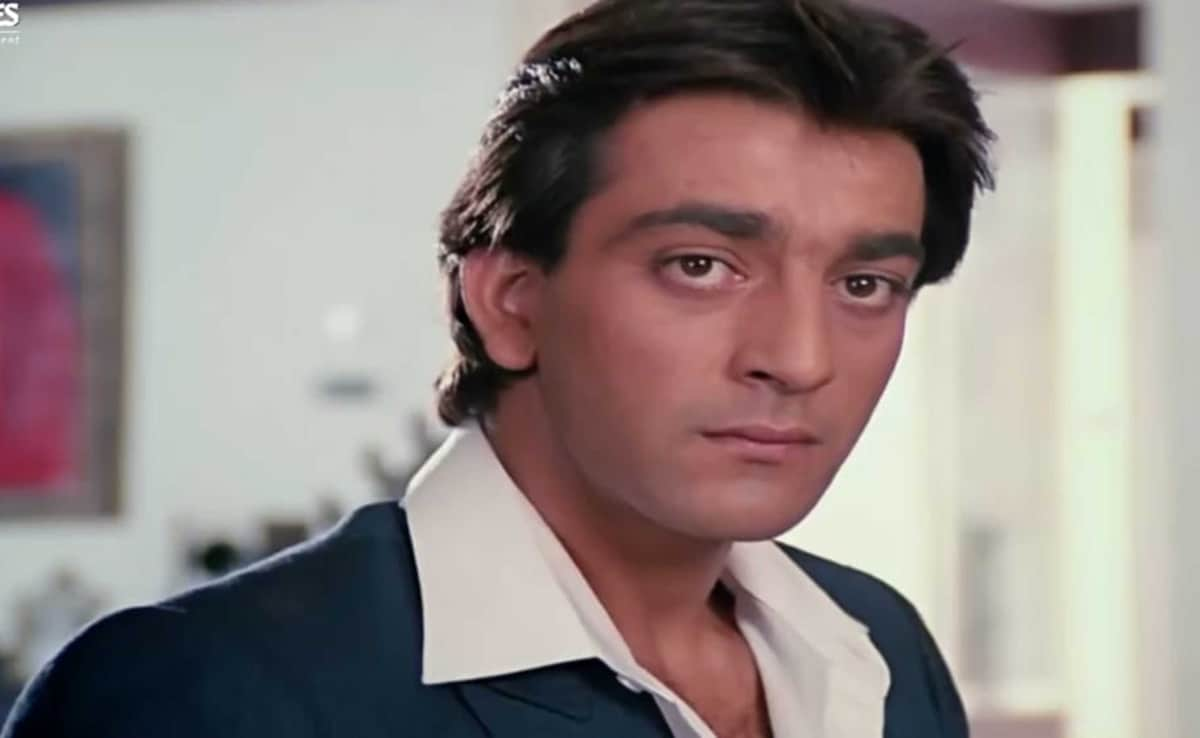
According to Mahesh Bhatt and Salim Khan, Sanjay isn't suited to an intellectual approach to acting. His natural approach is emotional and instinctive. 'He shows extreme emotions... reacts very violently when angry and gets terribly upset when hurt. There is a childlike quality about him. All [his] previous directors had tried to change Sanjay's personality into some other character. He would end up looking lost,' says Mahesh. But in Naam, Sanjay was channelling emotions he was familiar with and playing a character he could identify with.
Take, for instance, Mahesh Bhatt's favourite scene from the film. Sanjay is at a telephone booth in Hong Kong and calls his brother to tell him he's in trouble and needs help. In that scene, Mahesh recalls, 'Sanjay was a child full of fear and dread under the handsome, tough exterior. A child who had entangled himself up in some difficult situation but... was unable to understand the way out. And he unashamedly reaches his hand out towards his brother to save him in some way. Such a moment had come for Sanjay in his real life too.'
As the film approached release, its prospects seemed good. The music of Naam had become hugely popular before the film was out. Chitthi Aayi Hai became the biggest blockbuster of that year. Sung by Pankaj Udhas, it was all the rage, especially among NRI audiences.
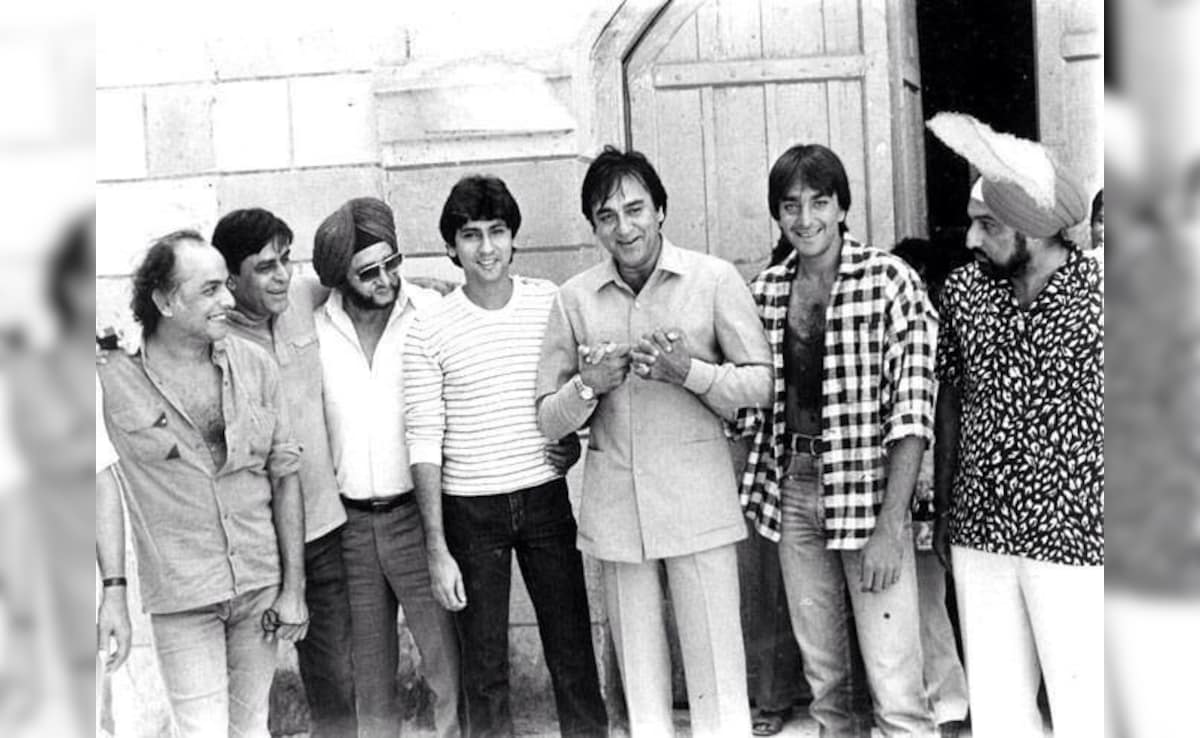
Naam hit theatres on 12 September 1986 and impressed critics and audiences alike. It went on to become the third-highest-grossing film of the year. It was Mahesh Bhatt's first golden jubilee (it ran successfully for fifty weeks), Salim Khan's first solo hit and Kumar Gaurav's first big hit after Love Story. But most importantly, people discovered a good actor and a new star in Sanjay Dutt, who got the maximum credit for the success of the film.
In Naam, Sanjay Dutt died on screen. But in the hearts of the viewers, Sanjay Dutt was reborn.
In the years to come, Sanjay Dutt would make many comebacks. But Naam was the last successful film for Kumar Gaurav, who, despite many 'relaunches', gradually faded into oblivion.
Following the release of Naam, Sanjay dropped by Mahesh Bhatt's shoot one day. There was a stir on the set. When Mahesh turned around, he saw Sanjay coming out of his car and walking towards him. A huge crowd was following him. People had gathered to catch a glimpse of Sanjay, recalls Mahesh. 'I still remember the smile he walked in with, the sunlight shining through his hair...how beautiful it was. He hugged me and said, "Thank you very much. Now I can look myself in the eye."'
-
Opinion | Budget 2026: Is 'Invisible Kerala' Paying The Price For Being 'Unaligned'?
What Kerala needs is not just sympathy or slogans. We need an alternative that commands respect in Delhi and delivers development in Kerala. Right now, we have neither.
-
21-Year Tax Holiday, Rs 2,000 Crore Safe Harbour: India's Data Centre Bet
Data centres are infamously capital resources-hungry and require massive amounts of electricity (to run the computers), water (to cool servers), and land (on which to build).
-
Blog | "Hamberder" To "Furniture Of Children", Trump And His 'Unpresidented' English
Time and again, Donald Trump has proven that he possesses the best words. They just aren't always the ones in the dictionary.
-
Opinion | Union Budget 2026-27: Don't Look For Fireworks Here. Continuity Is The Goal
The latest Budget needs to be read as a statement of macroeconomic restraint under external stress. Its defining feature is calibration.
-
Opinion | In Trump's World, Wikipedia's Lesson On Collaboration
Wikipedia founder Jimmy Wales's life's work rests on a proposition that feels almost subversive in 2026: that most people, given the right framework, want to collaborate in good faith.
-
Opinion | Iran Requires a Regime Change, Just Not The Kind America Wants
Trump's dreams of effecting a regime change in Iran need to be considered along two factors related to the power structures within Iran, both of which US seems indifferent to.
-
Opinion | Beyond Ajit Pawar: What Happens To Sharad Pawar's 'Succession' Plan Now?
If Pawar fails to produce one last rabbit from his hat to revive his party after the massive loss of Ajit Pawar, the BJP juggernaut is bound to move in to occupy spaces vacated by the NCP.
-
Opinion | Ajit Pawar: The Politician Who Didn't Pretend
Ajit Pawar bent over backwards to be in power; when there, he commandeered it to work for the public while helping his party, of course.
-
NDTV Exclusive: The Hunters Of Lyman - Inside Ukraine's Deadliest Drone Unit
In an exhaustive interview with NDTV, drone pilots and operators from Ukraine's Signum Batallion go into details about drone warfare and what happens on the frontlines.
-
Ten Minutes From Kanpur, The Plane Crash That Killed Madhavrao Scindia
On September 30, 2001, the Congress lost one of its brightest leaders, Madhavrao Scindia, in a plane crash 10 minutes from Kanpur
-
News Updates
-
Featured
-
More Links
-
Follow Us On












